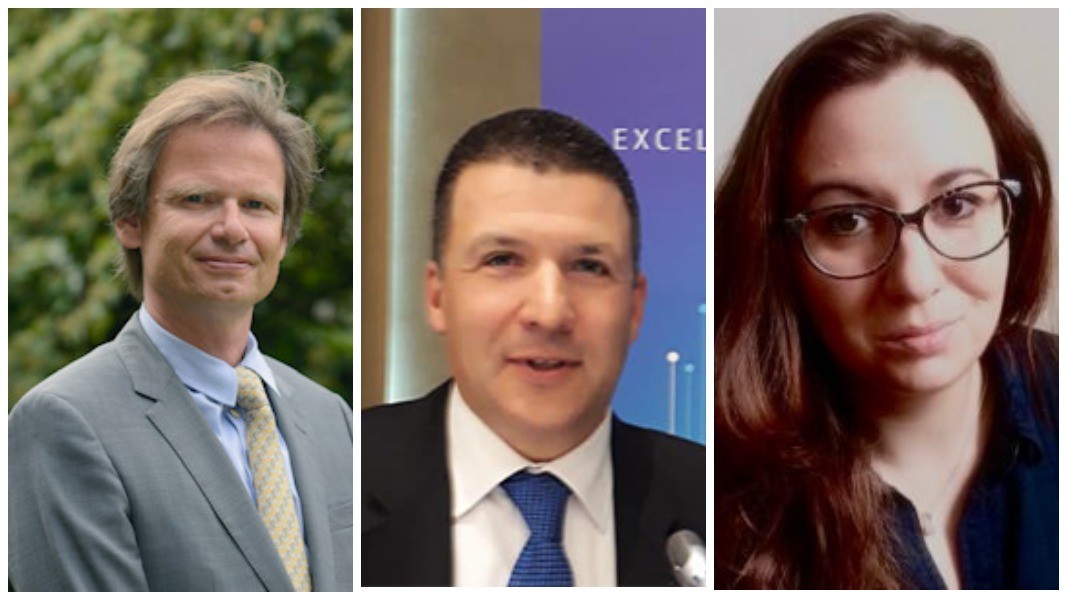On 9 March, within the frameworks of Francophonie month and the year in which Bulgaria marks 30 years since it became a member of the International Organisation of La Francophonie, the French Institute in this country, in partnership with the Belgian embassy and the St. Kliment Ohridski University, Sofia organized a conference on “European construction: challenges and future prospects”. The conference is part of a series of discussions dedicated to Europe.
The complex structure of the European Union was discussed by Loïc Grard, Professor of public law at the University of Bordeaux and President of the French Association of European Studies, Prof. Jean Crombois from the Department of Political Science and European Studies at the American University in Bulgaria, and Ildiko Otova who lectures at New Bulgarian University and at the St. Kliment Ohridski University.

Loïc Grard presented Jacques Delors’ model of Europe as concentric circles (Jacques Delors was President of the European Commission from 1985 to 1995) or as a shuttle on several levels with a solid nucleus around which the rest of the countries gravitate:
“We can be a family and not advance at the same speed,” he believes. In his words, together we can achieve what it is impossible to do individually.
Mobility, migration and citizenship are the elements around which the notion of Europe is articulated, Ildiko Otova said. The discussion has to revert to individual stories, she added.
According to Loïc Grard, a new narrative about Europe is needed, and it has to be connected with the main risk of today – the risk to the environment.
“I think that the priority in the discussion about Europe has to be Green Europe because on their own Bulgaria, France or Belgium are not going to get far,” he said.
Photos: institutfrancais.bg
The Bulgarian minority in Romania marked a significant event with the official opening of the Bulgarian Inn in the village of Izvoarele (Hanul Bilgarilor), Teleorman County (Southern Romania)- a locality with Bulgarian roots dating back over 200 years...
The 14th edition of DiVino.Taste, Bulgaria’s leading forum for wines and winemakers, will take place from 28 to 30 November at the Inter Expo Centre in Sofia. Over 80 producers from all wine regions will participate, offering tastings of around 600 of the..
Minutes before the second and final reading, at the parliamentary budget and finance committee, of the state budget for 2026, the leader of the biggest party represented in parliament GERB Boyko Borissov halted the procedure and sent the draft bill..

+359 2 9336 661
